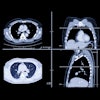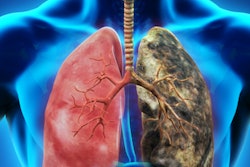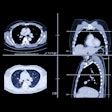Wednesday, December 4 | 10:30 a.m.-10:40 a.m. | SSK03-01 | Room E351
Researchers from Israel have developed a denoising artificial intelligence (AI) algorithm that can make coronary artery calcium (CAC) scoring viable on ultralow-dose CT scans."CAC scoring by CT is increasingly recognized as a powerful tool for cardiovascular risk stratification and patient management," Arnaldo Mayer, PhD, told AuntMinnie.com. "If we can sufficiently reduce radiation exposure, calcium scoring has the potential to become a screening test, accessible to the public."
For their study, Mayer and colleagues from Sheba Medical Center and Tel Aviv University obtained the conventional CT and ultralow-dose CT scans of 52 patients at their institution. The ultralow-dose CT scans used effective doses roughly equivalent to two chest radiographs.
The researchers subsequently applied their locally consistent nonlocal means algorithm to the ultralow-dose CT scans to enhance signal-to-noise ratio. The AI algorithm denoised the scans while maintaining local spatial consistency, preserving fine details and structures in the image, according to the group.
Finally, the researchers computed CAC scores from the CT, ultralow-dose CT, and denoised ultralow-dose CT scans. Upon comparing the results, they found that calcium scores from the denoised ultralow-dose CT scans matched those collected from conventional CT scans for all patients with moderate and severe calcium scores.
"The results showed that calcium scoring at ultralow-dose CT, computed on our AI-enhanced images, provided results similar to those obtained with normal dose CT scans but at a much lower radiation dose," Mayer said.




















